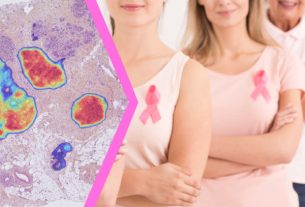Marital intimacy can be an unspoken casualty of war.
Four neighbors from Efrat, all wives of soldiers serving in reserve duty and small business owners, noticed similar concerns being expressed by their female friends and clients.
“How can I go to the mikveh and think of my own pleasure when we’re at war/when my husband’s friend was killed/when my friend is sitting shiva for her husband?”
“I really want to be with my husband, but every time we are becoming intimate, I am overwhelmed by flashbacks from the news.”
“I haven’t felt any desire for intimacy since October 7.”
“I’m worried that we might be interrupted by a red alert.”
“Our whole family is sharing a hotel room. How do we handle staying connected as a couple when we have no privacy?”
In response, the four decided to offer support for the women of their community by creating “a space to share, heal, gain tools and support for the effects of the war on sexual and intimate relationships,” according to Adena Mark (@atozeventsisrael), a luxury event and travel curator and one of the program organizers.
Mark said that although originally “the workshop was marketed to reservists’ wives in Efrat,” the facilitators “very quickly got responses from women from all over the surrounding area, such as Gush Etzion, Beit Shemesh, and Jerusalem.
“[We] got requests from women who were not reservists’ wives but felt they needed this workshop. After all, anyone living in Israel is affected by the war in various ways.”
Mark teamed up with neighbors Yonina Rubinstein (@yoninarubinstein), a sexuality educator and counselor; Rebecca Sigala (@rebeccasigalaboudoir), a body image coach and boudoir photographer; and Franny Waisman (@frannytours), a tour guide, Torah educator, and musician, to create a program they named Make Love in War.
As a bilingual sexuality educator, Rubinstein was aware that these concerns were beginning to be addressed in Hebrew circles, but Mark wanted to see something offered for English-speaking women.
“Back in October, no one was talking about this, just as no one was talking about the sexual abuse that happened on October 7. So much was being held in and held back. The [specific] challenges women were having were being made to feel secondary. [There was a lot of] guilt and trauma,” Mark said.
Rubinstein elaborated that the group “wanted to create an intimate place to share in a beautiful, pampering environment. We created a space for people to relax; we created an experience. [We wanted to communicate that] it’s okay. It’s safe to experience pleasure, even with everything going on.
“We’re not just saying it’s okay to have sex. Davka (specifically) during war, it’s more important than usual for emotional connection and resilience, [to] experience pleasure during this time,” she explained.
AFTER OCTOBER 7, body image coach Rebecca Sigala offered boudoir photography sessions for 100 wives of reserve soldiers. She noticed that “women were in survival mode, focused on basic necessities. Sexuality was not seen as a basic need.
[Additionally], women weren’t feeling safe in their bodies.” She elaborated that “the war exaggerated what we were already going through.”Waisman said that during their planning sessions, “we all wanted [to create] a place where women could come and be able to be vulnerable.” Mark added that “women were coming for a sense of acceptance, a place of safety. That was very healing.”
Mark’s goal was “to create a safe space to talk about a very important issue; women didn’t have the space beforehand to know that they are not alone.” The oldest of the group, Mark was motivated by “a maternal feeling, [a desire to] give the women a warm and loving space.”
For Sigala, the workshop was a natural extension of her daily work. “I help women improve their relationship with their bodies. I wanted to share about entering or deepening your relationship with your body. I led people through a visualization about what feeling sexy means for them. [I wanted them to] find some sense of sensuality, of life force, when you are connected to your body.”
Rubinstein’s goal was “to help normalize the challenges couples were facing and give them tools. These tools existed in the world already, and the trick was finding ways to adapt and apply them in this situation. [Issues included] sexual trauma triggered by the war; the relationship between stress and sexual desire; and increasing sexual desire in a long-term relationship. These issues took on a new emphasis during the war.”
For Waisman, the emphasis was on relationships. “I deal a lot with the world of relationships, spiritually creating the fuel for intimacy.” During war, she noted that “There’s a new form of a relationship where you don’t live together [because many husbands are in the reserves].” She wanted to help women figure out “how to continue an intimate relationship when you don’t live together.”
For the initial workshop to be successful, the group knew that establishing the right atmosphere was crucial. Waisman elaborated that “We ourselves came vulnerable and brought up the topics. We set the tone that it was a safe space. We addressed the fact that we don’t [usually] speak about these things, even though they are such important and holy topics.”
Rubinstein emphasized that the facilitators are all professionals, experienced in creating respectful and protected environments. Sigala said, “We created a workshop around these topics and normalized it. People who shared vulnerable things helped set the tone. We wanted people to have body-centered experiences.”
The workshop had four parts. Mark provided an introduction. Sigala followed with an exploration of the personal, including her paradigm of the concept of sexiness. Rubinstein taught practical intimacy exercises for couples. And Waisman concluded with an exploration of the role of the spiritual, including a musical meditation.
Participants were invited to submit questions anonymously ahead of time, and no one was required to speak during the event.
The event received incredible feedback
The organizers were delighted with the feedback, which included comments such as:“I wish every woman I knew was at this powerful event.”
“I’ve never thought of sexiness like that before!”
“I just wanted to tell you that after the Love not War thing today, I was thinking how I feel very shalem [complete] from the experience. Very grounded. And sexy. And good in my body. Glad I pushed myself to experience it.”
“This was amazing. You guys need to have an audience of thousands of women!”
Waisman said that she “recorded the meditation that I did at the workshop because some women really wanted it to keep practicing at home.” One of the program participants shared this message of appreciation: “Decided to listen to your beautiful ‘Ana b’koach’ again today. Flooded with tears. It is so beautiful. Appreciative all over again. Thank you for touching me with your music.”
The response was so positive, that the group created a second, hybrid event that was both live and on Zoom to allow more women to participate.
Mark commented, “The women who attended the workshops ranged in age, religious, and professional backgrounds and relationship status. The responses ranged from relief, gratefulness, tears, thirst for more, and mostly, ‘Finally, there is a place for me to talk about this.’”
Both events were sponsored by donors from outside of Israel. In addition to supporting Israeli businesswomen, Rubinstein said that the importance of these workshops is much deeper. “If everyone goes off to war, people’s relationships [are in danger of] falling apart. We’re fighting for the continuation of the Jewish people. The goal is to bring this to as many communities as possible,” either in person or virtually, she concluded.
The group is currently considering requests from women to bring the workshop to neighborhoods in Jerusalem, Modi’in, Rehovot, Ra’anana, and Tel Aviv. To help sponsor or to organize a workshop for your community, contact [email protected].
The writer is a freelance journalist and expert on the non-Jewish awakening to Torah happening in our day. She is the editor of Ten from the Nations and Lighting Up the Nations.


